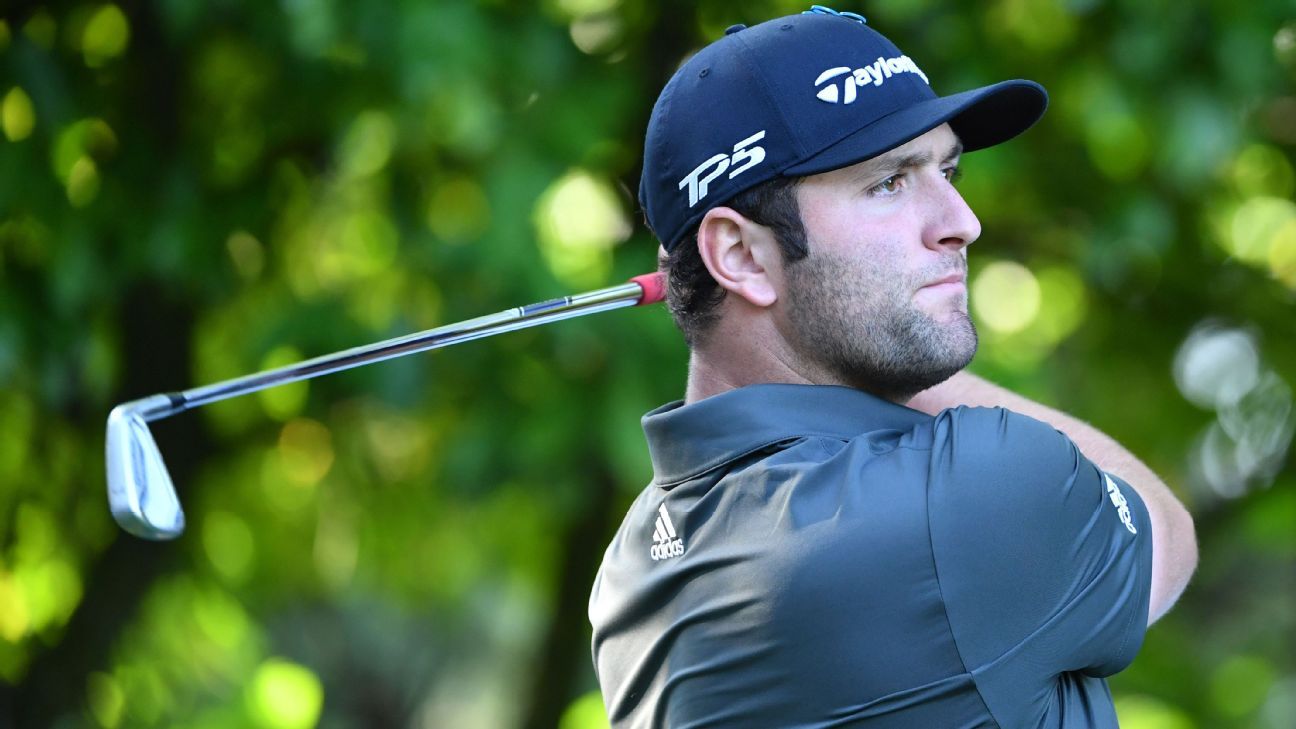JERSEY CITY, N.J. — It’s been an amazing summer for Jon Rahm, who birdied the last two holes to win the U.S. Open, ascended to No. 1 in the world, was in the top eight in the four tournaments he finished — and had two very high-profile withdrawals due to COVID-19 positive tests.
Rahm returns this week at Northern Trust at Liberty National — the first of three tournaments that comprise the FedEx Cup playoffs — having missed the Olympic golf tournament due to a positive test prior to travel. He had also tested positive following the third round of the Memorial Tournament, where he had a 6-shot lead after 54 holes.
“Still makes me a little sad, I’m not going to lie,” Rahm said of the Olympics, where he was scheduled to play for Spain. “I’m going to have to wait three more years hopefully to qualify for the Olympics, but I was really ready for this one.”
Rahm said he was required to take three COVID-19 tests prior to traveling to Tokyo. The first two — on Thursday and Friday prior to the Olympic week — were negative. The Saturday test came back positive, as did another later that night. Because he needed to test negative on three consecutive days, there was not time for him to be cleared.
“This was a little harder to digest than Memorial because I’ve done everything the system tells me to do,” Rahm said. “I got all my negatives. First one on Thursday negative, Friday negative, Saturday I get my first positive. And then they tested me again that same day, and I apparently was positive again.
“Then I got tested the next two days. One was the saliva test, one was PCR — both negative. Got an antibody test done, so a blood test, and I had the antibodies. So I can’t really explain what in the world happened. I don’t know if it’s false positives or just what I had left over from when I had COVID, just dead cells that were in there that we all know can happen. There’s a reason why the PGA Tour won’t test for a while after you’ve had COVID.”
The PGA Tour has discontinued its testing program, but when it was in use, a player who had tested positive was not required to test for 90 days, per Centers for Disease Control guidelines that said a person would not be contagious under those circumstances. Had Rahm been playing a PGA Tour event instead of the Olympics, he would not have been required to test.
After his positive test at the Memorial, Rahm needed to produce two negative tests on consecutive days in order to leave quarantine early, which he did. He then went on to win the U.S. Open. Before traveling to the United Kingdom for the Scottish Open and The Open, he tested negative to fly, then was negative at the Scottish, again at The Open and before traveling home.
“Hopefully, I don’t have to deal with any of that ever again … and I can just keep playing golf and doing what I love and contend for tournaments,” Rahm said. “But at the same time, like I’ve said, it’s a reminder of the times we live in. It is a serious disease. The consequences can be big, and I know — not firsthand — but I know people who have been close to me to suffer them.
“That’s why I don’t take it lightly, and that’s why every day I’m still thankful that, even then when I had it, everyone around me in my family was OK and didn’t get it. So that’s a positive side out of it.”
One thing Rahm has going for him is he’s rested going into a busy three-week stretch. He has not played since he tied for third at The Open last month. Two years ago, Rahm tied for third in the Northern Trust when it was last played at Liberty National. And last year, he won the BMW Championship.
“As unfortunate as it was, it gave me some time to rest,” Rahm said. “So I think, maybe not this week but looking into the next few weeks, probably physically, mentally, I’ve been more rested than everybody else. So that could be my advantage.”
